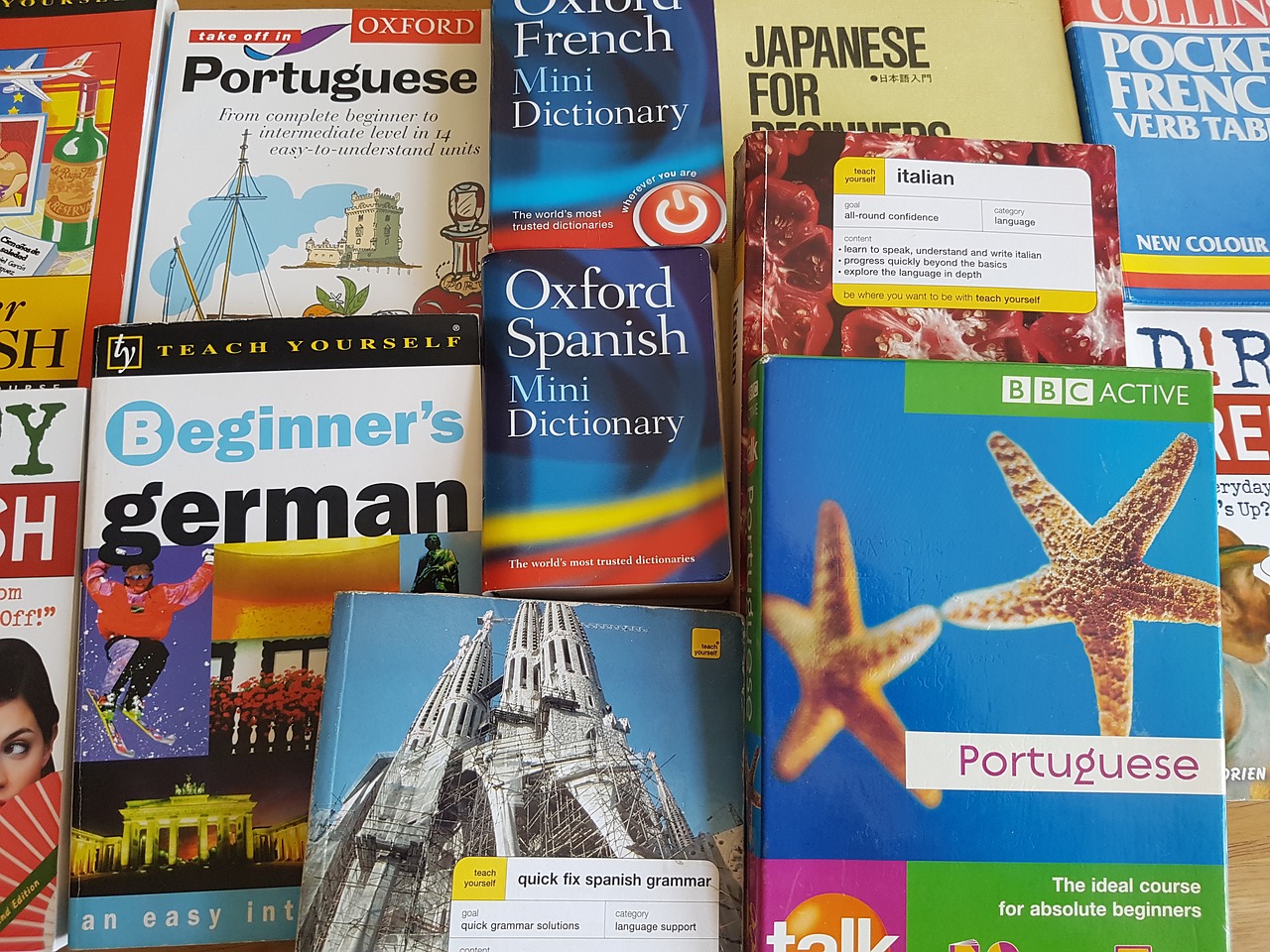Learning a new language is a fun and exciting activity.
In this article, we’re looking at the easiest languages to learn and what makes each one special. With a willingness to make mistakes and push yourself outside of your comfort zone, learning a new language is beneficial to your health and brain.
What Makes a Language Easy to Learn?
Everyone is different. Though, if you’re interested and passionate about something, you’ll learn it quicker. When learning a new language, the most important thing is patience and a willing to learn. It might be obvious to say this, though it’s good to know what your motivation is for learning a new language. Perhaps it’s a hobby, or you intend to travel to the country. No matter your reason, stay committed to your reason to keep you going through hard times.

Learning with a partner makes it easier to practice, as well as improve your pronunciation. You may wish to choose a friend to have an activity you can share together. Alternatively, invite someone who’s also interested in the language to learn it with you. Together, you can motivate one another and push each other to improve. However, if you can’t find anyone who’s interested in participating in the easiest languages to learn, record yourself and listen back to help yourself to improve.
What Are The Benefits of Learning a Language?
To stick to a new hobby, you need to appreciate the benefits of it to keep yourself motivated. Learning a second language can open up more doors to amazing career opportunities. The world is changing fast and more companies than ever engage with businesses and countries around the world. Therefore, they’re hiring globally-minded people who can speak more than one language. This is an extremely helpful skill for a variety of companies – even just to occasionally speak to clients overseas.
Another reason to engage in the easiest languages to learn are the benefits it has on your brain. Research has found that learning another language has incredible cognitive benefits. As a result, this improves your memory improvement, and reduces your risk of age-related cognitive decline, as well as other health effects.
If you’ve ever learned a second language, you’ll appreciate how it opens your eyes to different cultures. Not to mention, it enriches your experience to speak with others around the world. If you’ve ever visited a local market on holiday, you’ll have heard employees talking to one another in another language. Interrupting their conversation in their native language can quickly kill the topic. But, by speaking in their native language, you don’t miss out on authentic cultural experiences.
Also, if you only learn to speak an additional language basically, you improve your chances of connecting with others. Consequently, you can make more friends and give yourself a better opportunity to learn.
The Easiest Languages to Learn Starting Today
Are you looking to expand your cultural skills? If so, we’ve compiled a list of the easiest languages to learn and details about each language. Take your pick and find a new hobby which will challenge and motivate you.
1. Spanish
Spanish is one of the easiest languages to learn. In fact, it’s the most widely spoken second-language in the United States. People speak it in over 20 countries around the world, and speaking it opens doors to a world of jobs. Spanish is the fourth most spoken language in the world (after Chinese, Hindi and English). English speakers find it one of the easiest languages to learn because it uses the same alphabet (inside from a few letters) which are similar to English. With many people having more exposure to the Spanish language in their native countries, it makes it easier and more possible to pick up.
Due to its similarity to the English language, most words in Spanish are pronounced as they’re written. Therefore, reading and writing in Spanish is far easier than some other languages. In total, there are only 10 vowel and diphthong sounds and no unfamiliar phonemes, which makes it easier to catch onto.
If you’re a beginner, it’s a good idea to pick up a Spanish book, or dictionary to become familiar with how the language is written. At this point, you won’t know if you’re reading it correctly, so we recommend finding an audio version of the text and listening along as you read. By doing so, you can make connections to the written and spoken word which makes it easier to grasp this new language. Begin to make Spanish culture a part of your life. Get your daily dose of TV in Spanish, rather than English. Attend classes (such as art, cooking and fitness) delivered in Spanish to further expand your speaking and listening skills. By doing so, you’ll pick up on greetings and general conversation lingo.
2. French
There are so many reasons why you should learn French in your life. It can completely transform your life and open your life to new cultures and friendships. Compared to English, French is one of the easiest languages to learn. Regardless of what you may have heard, it’s not as difficult as you think. In fact, it’s a language which is much easier to achieve fluency in that you may expect.
The French and English alphabet have many similarities and a large portion of similar vocabulary. Specifically, English has more in common with French than any other language. The French language has more history than English, and was once spoken within England courts for centuries before which completely transformed the English language as we currently know it. Because of its diverse history and culture, it quickly became one of the most popular languages to learn and was spoken in schools and universities around the world. If you already have a fluent understanding of English, you’re already off to a good start in French vocabulary. You’ll be familiar with the spelling, pronunciation and meanings of words.
As with many languages, learning the gender is important, and the French language is no different. This is because gender has a strong influence on pronouns, adjectives and verbs. If a noun refers to animals that can only be male, it will begin with ‘le’. On the other hand, if it is female, then it will begin with ‘la’. These rules also apply to humans and places. If you look at the ending of a word, you can generally guess what gender it is. For example, words ending in ‘ment’, ‘er’, and ‘ou’ are masculine.
3. Portuguese
Only 11 schools in the UK offer Portuguese as a foreign language option, and it’s no better in the United States. There are many factors which make some languages easier to learn than others. For example, if there’s a level of interest in the language’s culture, it becomes easier to learn the language. This language has become a powerful language to learn and the Brazilian economy is ranked sixth in the world.
Portuguese is similar to Spanish, Italian and French. If you have experience in learning a little of a Romance language, you already have a good start on learning Portuguese. The only main difficulty with this language is the pronunciation of the nasal vowel sounds, as it requires practice. The letter ‘R’ has different sounds, which can sometimes sound like a ‘H’ in English. However, it’s also one of the easiest languages to learn. For example, you don’t need to learn the second person. The ‘tu’ form is rarely used in parts of Brazil. By not having to learn the second person, you instantly save 1/3 of the verb forms you need to learn. Small talk tends to be easier than other languages, and if you’ve heard brief and friendly conversations, you’ll more than likely get the gist of conversations.
Also, instead of using the first person plural ending, you can fake it by using the third person singular. So, all you really need to know is the ele/ela/você and the eles/elas/vocês forms to get up and running with the language.
4. German
German is another of the easiest languages to learn. You may have heard that it’s a difficult language to learn, but that’s not the case. The pronunciation is predictable, and once you’ve learned which letters combine to create a sound, you’ll understand how to read new words. Also, most of German sounds are familiar to the English language even if they are sometimes represented by different combinations than in English. As a whole, there are only a few new sounds to learn in addition to English. It’s also worth bearing in mind that many of these sounds are easy to replicate using sounds you can already pronounce. For example, ö and ü aren’t in the English language, but with some basic knowledge, it’s easy enough to pick this sound up.
Contrary to other languages, German only has one tense to express three things. For example, “he visits his parents”, “he is visiting his parents” and “he does visit his parents”. This rule and simplicity makes German one of the easiest languages to learn and get a grasp of. Furthermore, German speakers don’t use a discrete future tense. Instead, they commonly use the present tense when referring to the future. As a result, you can generally get by in German by using the future tense most times.
There are many similarities with the English and German language. Specifically, they both share the same 26-letter alphabet, as well as similar sounds and have similar stress and intonation patterns. Also, both languages show tense through fixed suffixes which makes it much easier to read and understand – especially when you’re just beginning to learn this language.
5. Mandarin
Mandarin is another of the easiest languages to learn. Chinese grammar is similar to English grammar. For example, “I wash my hands” translates to “I wash hands” in Chinese. As a result, this makes it simpler to comprehend and learn. There are some differences between the Chinese and English language, but it isn’t hard to bridge the gap between the two. Pronunciation isn’t a problem for British students. In fact, most of them find it easy to speak Chinese – even with no prior experience. However, Mandarin is a stress-timed language with four tones whereas Cantonese, which has six.
Mandarin is primarily spoken in mainland China. To make it easier to learn, we recommend hanging out Chinese people and encouraging them to speak their language around you. Even just a five-minute conversation with simple greetings is a great way to develop your understanding of this language. Alternatively, we suggest listening to Chinese podcasts and videos to listen to the proper enunciation and pronunciation.
Without a doubt, the best way to learn Mandarin is to experience China or Taiwan itself. Most locals don’t speak English, which makes it a great experience to speak and listen to Mandarin. You shouldn’t expect yourself to learn it immediately and perfectly, but it’s a majestic language and a great way to learn about the people, food, people and culture. Another effective way to learn Mandarin is to volunteer abroad teaching English to Chinese students. By doing this, you’ll combine the culture and language to experience Chinese to the fullest.
Do You Have any Tips on Learning a New Language?
We hope you enjoyed reading about the easiest languages to learn. With travelling around the globe made more possible than ever, there’s no better time to volunteer abroad and expand your skills. Invest in online and offline programmes to further improve your enunciation and learn about the history of your new-found language.
Do you have any tips on learning a new language? If so, share your advice and thoughts in the comments to keep this conversation going.
Related Article: Travel to Your Favorite Star Wars Filming Locations In This Galaxy


